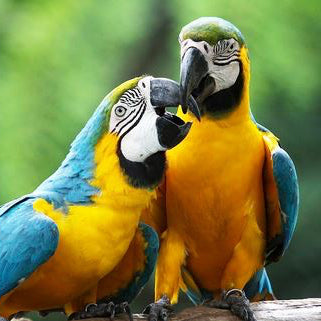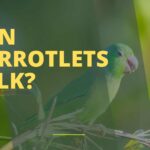Macaws can live for 50 to 70 years as pets. Their lifespan depends on their care, diet, and environment.
Macaws, the vibrant parrots native to South America, are known for their longevity, typically reaching an advanced age when kept in nurturing, healthy conditions. Their dazzling feathers and sociable nature make them a popular choice for pet owners who can provide a dedicated and enriching environment.
A well-balanced diet rich in fruits, vegetables, nuts, and high-quality pellets, coupled with plenty of exercises and intellectual stimulation, is essential for their well-being. Regular veterinary check-ups contribute to their health and longevity. Owners should prepare for a long-term commitment, as these magnificent birds forge strong bonds with their human companions. Ensuring a safe and spacious habitat, mental engagement, and social interaction, macaws can enjoy a full lifespan, gracing homes with their beauty and companionship for decades.
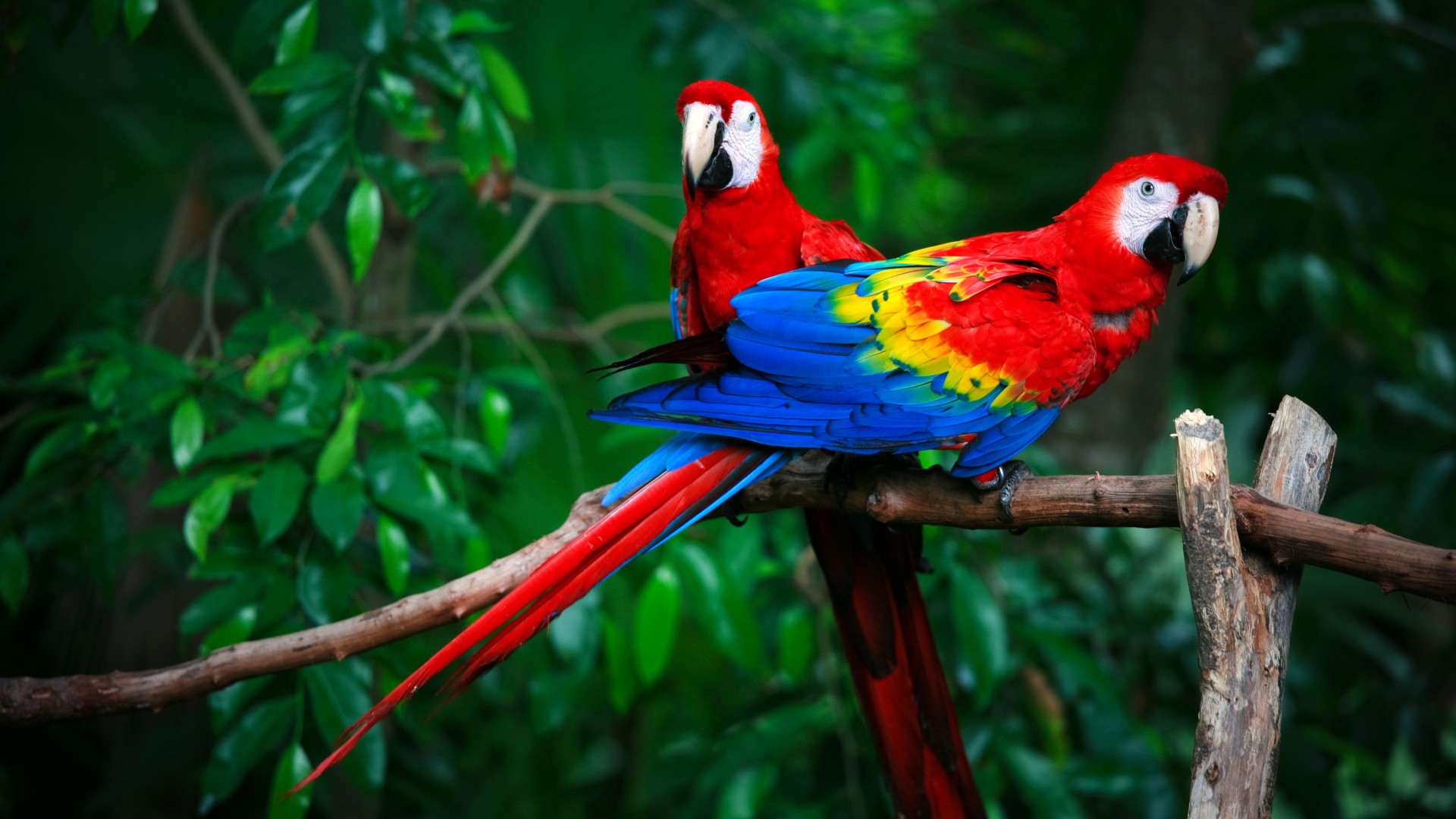
Credit: www.livescience.com
The Lifespan Of Macaws
Colorful and charismatic, macaws often become beloved members of the family. Their lifespan, however, surprises many potential pet owners. Macaws have one of the longest lifespans among pet birds, rivaling even that of humans. Today, let’s delve into how long these majestic birds live when they’re cared for as pets.
Factors Influencing Macaw Longevity
Diverse factors contribute to how long macaws live in captivity. Below is a list of those key factors:
- Diet: A balanced diet is crucial.
- Environment: They need a clean, safe, and stimulating environment.
- Healthcare: Regular check-ups with a vet specialized in birds are important.
- Social Interaction: Macaws are social and require regular interaction.
- Genetics: Just like humans, genes play a role in their lifespan.
Comparative Lifespan: Wild Vs. Pet Macaws
| Condition | Lifespan |
|---|---|
| Wild Macaws | Up to 50 years |
| Pet Macaws | 30 to 50 years, sometimes up to 80 years |
Wild macaws face predators, habitat loss, and other challenges that can shorten their lives. As pets, when provided optimal care and environment, macaws often live longer. With loving guardians ensuring their needs are met, these pets can enjoy a full, long life.
Species-specific Life Expectancies
Macaws are vibrant and majestic pets, enchanting owners with their brilliance and personality. These birds aren’t just a short-term commitment; they share our lives for many years. Each species of macaw has its lifespan, impacted by environment and care. Here’s what potential macaw owners should know about the life expectancies of these colorful companions.
Blue And Gold Macaws
The Blue and Gold Macaw is a favorite among bird lovers. These adaptable parrots typically live 30 to 35 years in captivity, though with exceptional care, they can live up to 60 years! A rich diet, proper exercise, and regular veterinary check-ups are vital for their longevity.
Scarlet Macaws
Scarlet Macaws boast a ‘fiery’ plumage and a vibrant personality to match. With a proper diet and regular care, Scarlet Macaws can grace your home for 40 to 50 years, sometimes even reaching the ripe age of 75 with optimal care.
Hyacinth Macaws
Among the largest of their kind, Hyacinth Macaws are strikingly beautiful with their deep blue feathers. They’re known for their friendly disposition and can be lifelong friends, living up to 50 years or more when well-cared for in a loving home.
Note: While these life spans are typical, individual health, genetics, and environmental conditions play significant roles. A safe environment, proper diet, companionship, and regular health check-ups with an avian vet will help ensure your macaw has a long, flourishing life.
Caring For A Macaw
Welcome to the vibrant world of macaws! These magnificent birds boast a rainbow of colors and personalities as diverse as their hues. To ensure your feathery friend enjoys a long, happy life as a pet, attention to their care is key. Proper nourishment, mental stimulation, and health care dramatically impact their well-being and longevity.
Nutritional Needs
Macaws thrive on a rich diet.A balanced diet is crucial and should include:
- Pellets: high-quality pellets form the base diet.
- Fruits: like apples and bananas for vitamins.
- Vegetables: such as carrots and leafy greens.
- Nuts: in moderation, for essential fats.
Always provide fresh water. Avoid chocolate, avocado, and caffeine, as they are toxic to macaws.
Environmental Enrichment
A happy macaw needs an engaging environment.Here’s how to create a stimulating space:
- Toys: offer different textures and shapes to chew.
- Perches: of varying sizes to exercise their feet.
- Space: room to fly and stretch their wings is essential.
- Interaction: macaws require daily social time with their owners.
Rotate toys regularly to keep interest high.
Regular Veterinary Care
Just like dogs and cats, macaws need vet visits.Annual check-ups to monitor health are vital. Look out for these signs:
- Plumage: feathers should be bright and full.
- Behavior: sudden changes could signal issues.
- Appetite: a decrease may indicate health problems.
Find an avian vet and stick to regular appointments.
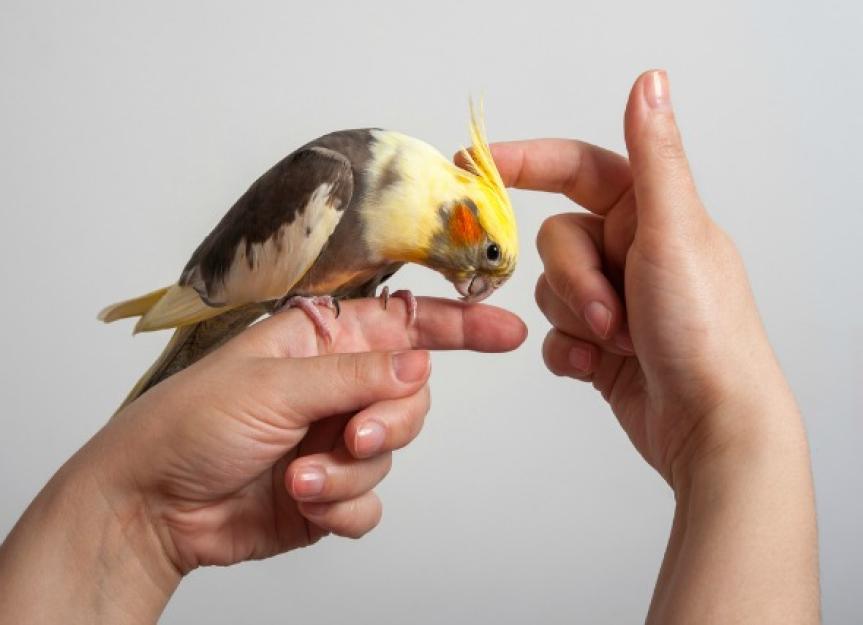
Credit: www.petmd.com
Common Health Issues In Macaws
Macaws brighten our lives with their vibrant colors and playful personalities, yet they can face health challenges that every pet owner should be mindful of. We delve into common health issues that macaws encounter to ensure these birds enjoy a long, happy life as part of your family.
Psychological Stress
Macaws are smart and emotionally sensitive birds. Lack of social interaction and mental stimulation causes stress for them. Signs of psychological distress include feather plucking, aggression, and changes in vocalization. To keep their mental health in check:
- Provide daily interaction
- Ensure plenty of toys are available
- Create a routine for playtime and rest
Physical Ailments
Physical issues can range from nutritional deficiencies to more severe diseases. Common ailments include:
| Disease | Symptoms | Risks |
|---|---|---|
| Proventricular Dilatation Disease (PDD) | Weight loss, regurgitation | Fatal if untreated |
| Psittacosis | Eye discharge, difficulty in breathing | Contagious to humans |
| Beak and Feather Disease | Feather loss, beak deformities | Can be chronic |
Preventive Measures
Consistent care reduces the risk of health issues. Key preventive steps include:
- Regular veterinary check-ups
- A balanced diet enriched with vitamins
- Clean, spacious living environment
- Up-to-date vaccinations
Attention to these factors helps spot symptoms early and keeps your macaw healthy.
The Role Of Genetics
Genetics play a crucial part in the lifespan of macaws as pets. Like human beings, each macaw inherits a unique genetic code from its parents. This genetic code carries traits that can influence not just the bird’s color and size, but also its health and longevity. Understanding how these inherited traits can impact a macaw’s life is essential for any prospective pet owner.
Inherited Traits
Macaws inherit various traits that contribute to their overall well-being. Some of these traits include resistance to diseases, strength of beak, and quality of feathers. A robust genetic foundation can mean a healthier, longer-lived pet. Genes also dictate metabolism and growth rates, which are critical to their survival and adaptability in a home environment.
Selective Breeding Impacts
Breeders often select macaws for certain traits to produce offspring with desired characteristics. Selective breeding can reinforce positive health traits, increasing a pet macaw’s lifespan. Yet, it can also lead to genetic bottlenecks. This happens when there is a lack of genetic diversity, potentially causing inherited health issues. Therefore, responsible breeding is key for ensuring the vitality and longevity of these magnificent birds as pets.
Importance Of Mental Stimulation
The lifespan of macaws as pets often extends to several decades, with these vibrant birds brightening homes with their presence for up to 50 years or more. A key factor in their longevity is mental stimulation, essential to keeping their intelligent minds active and their emotional health in check. Without adequate mental exercise, macaws can develop behavioral issues and suffer from a reduced quality of life. Here’s why training and play are crucial for these feathered friends.
Training And Intelligence
Macaws thrive on mental challenges, and training provides the perfect platform for cognitive engagement. These birds boast high intelligence, resembling the cognitive abilities of young children. Regular training sessions not only fortify their mental well-being but also strengthen the bond with their owners.
- Teach basic commands like ‘step up’ or ‘come’ to stimulate their minds.
- Introduce complex tricks over time to keep their brain working.
- Use positive reinforcement techniques, rewarding them with treats or affection.
Training can often extend beyond basic tricks, including activities that encourage problem-solving and mimic natural behaviors. Macaws naturally love to forage, so incorporating puzzle feeders in their routine can simulate this natural instinct.
Toys And Play
Like children, macaws love to play. Toys are vital for their physical and mental health. In the wild, macaws will explore, chew, and interact with a diverse environment—a level of stimulation that must be replicated in captivity to prevent boredom and associated health issues.
| Toy Type | Benefits |
|---|---|
| Chewable Toys | Keep beaks healthy and minds active |
| Puzzle Toys | Encourage problem-solving skills |
| Foraging Toys | Simulate natural foraging behavior |
Rotating toys and changing the play setup regularly can prevent boredom and stimulate curiosity. Handheld toys foster interactive play sessions, which are essential for socialization and mental development.
- Introduce new toys consistently to keep the environment dynamic.
- Engaging play sessions reduce the risk of feather plucking, a common sign of stress in birds.
- Encourage play with safe materials—avoid toxic paints or small, swallowable parts.
Creating A Safe Habitat
Ensuring a macaw has a safe and comfortable environment is crucial for its wellbeing. A properly designed habitat can extend a macaw’s lifespan significantly. Here, we discuss essential factors that contribute to creating a safe habitat for macaw pets.
Cage Requirements
Macaws need spacious cages to spread their wings and play. A macaw’s cage should be at least twice as wide as the bird’s wingspan. Quality material like stainless steel helps prevent possible injuries.
- Bar spacing: 1 to 1.5 inches to prevent escape or entrapment.
- Cage size: Minimum 36 inches wide, 48 inches deep, and 60 inches tall.
- Multiple perches of varied materials and diameters for foot health.
- Plenty of non-toxic toys for mental stimulation.
Home Hazards To Avoid
Household dangers can pose a threat to your feathered friend. Prevent unthinkable accidents with precautionary measures:
| Hazard | Prevention |
|---|---|
| Toxic fumes | Keep away from kitchens and use non-stick cookware carefully. |
| Sharp objects | Remove or cover items that could cause injury. |
| Small items | Ensure no small, swallowable items are within reach. |
| Pesticides/Chemicals | Use only bird-safe products for cleaning and pest control. |
| Open water | Close toilet lids and cover large containers of liquid. |
Regular inspections for potential hazards in the macaw’s surroundings are vital. Always stay alert to changes in your home that could affect your pet’s safety.
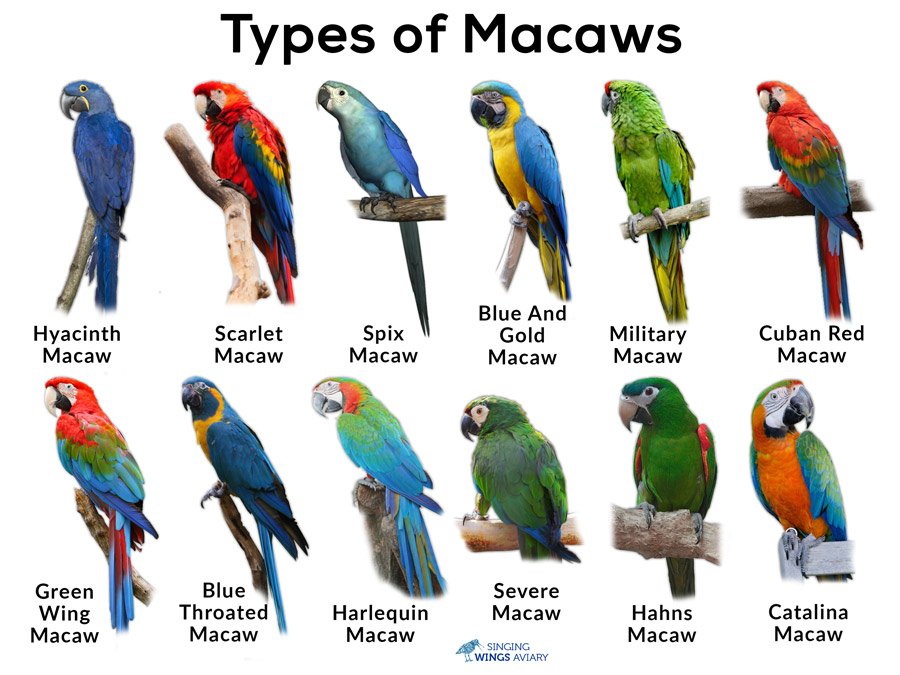
Credit: www.singing-wings-aviary.com
When A Macaw Outlives Its Owner
Macaws, with their vibrant feathers and intelligent eyes, often join a family with the promise of decades of companionship. Their remarkably long lifespan leads to a unique situation for many pet owners. What happens when a Macaw outlives its owner? This crucial topic calls for thoughtful planning to ensure the majestic birds continue to thrive even after their human companions pass away.
Legal Considerations
When it comes to ensuring the welfare of a Macaw after an owner’s death, legal steps are paramount. It’s advisable to consult with an attorney to include the Macaw in a will. This ensures clear instructions are available for the bird’s future care. Including a pet trust can also provide financial means for the Macaw’s upkeep, creating a well-defined plan for their lifelong care.
Finding A New Home
Finding a loving and capable new home for a Macaw requires careful selection. It’s essential to consider the bird’s needs, and preferences, and to look for a new owner who is experienced with parrots. Options include:
- Family and friends who are familiar with the bird
- Animal sanctuaries or rescues specializing in exotic birds
- Parrot-specific adoption services
Networking within bird-loving communities can facilitate finding the right match for a Macaw. Ensuring the new home can provide the necessary diet, space, and engagement will help the bird adjust and live out its years happily.
Conclusion
Owning a macaw is a long-term commitment, often spanning several decades. By providing proper care, a nutritious diet, and a loving environment, these vibrant birds can brighten your home for up to 50 years. Ensure your feathery friend’s longevity and happiness with dedication and knowledge.
Ready to embark on this rewarding journey? Embrace the vibrant life of pet macaws.
Ryan Everhart is a passionate bird enthusiast and blogger, primarily writing on his website, Avian Whispers. His journey into the world of bird blogging began with a deep interest in parrots, a species that captivated his attention for their intelligence and social behavior. Over time, his content expanded to cover a broader range of bird species, offering insights into bird behavior, care, habitats, and conservation.
Ryan is dedicated to educating his audience, which includes both new bird owners and seasoned enthusiasts. His writing is filled with personal experiences, expert knowledge, and practical advice on bird care. Through Avian Whispers, he aims to foster a deeper appreciation for birds, emphasizing their role in nature and the joys of having them as pets.
Starting with articles focused on parrots, Ryan’s work now encompasses a diverse range of topics such as feeding, training, habitat enrichment, and bird health. His love for birds extends beyond parrots, diving into various avian species. His informative and heartfelt writing reflects his commitment to the well-being of birds and the desire to help others connect with these creatures.
As a growing voice in the bird blogging community, Ryan strives to provide a platform where bird lovers can learn, share experiences, and connect over a shared passion for avian life. His blogs are not only educational but also serve as a reminder of the importance of protecting and nurturing the bond between humans and birds.

